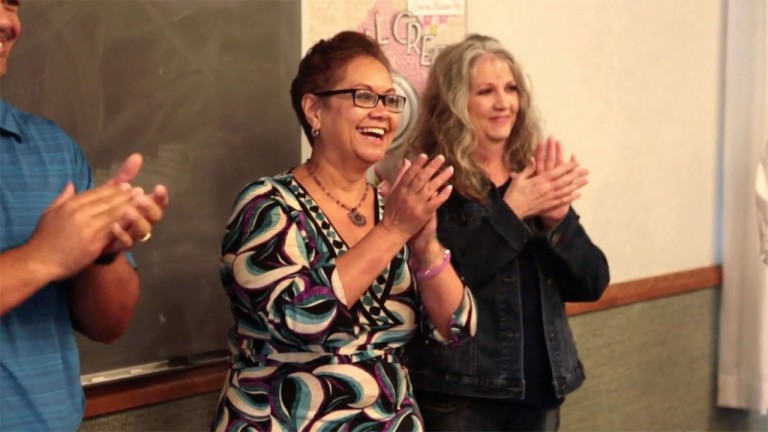
The Church is changing, and with it, so must we.
Because we are now focusing on being home-centered, all of us are teachers and facilitators. Teachers are always going to be needed in our church lessons, but their role is being enlarged, as a facilitator, by including the entire class in the role as the teacher.
Remember how we used to say, The teacher always learns more than the student because you have to understand the material before you can teach it? Now, the teacher isn’t expected to know everything but instead spends much of the teaching time inviting others to share answers they have received.
Facilitator
The church has recently introduced Self-Reliance classes, led by facilitators. The guidelines for a facilitator are these: (from a Self-Reliant Manual, p. iv-v)
- does not prepare a lesson.
- is not the expert on the subject
- creates a council with the Holy Ghost as the teacher.
- shares excitement and love for each class member.
- talks less than other class members and doesn’t offer an opinion after every comment.
- lets class members answer questions instead of answering them.
- allows time for class members to ponder in silence.
The above video is talking about Self-Reliance courses we can take, available through our stakes. But the same idea can be nurtured in our Relief Societies and Elder’s Quorums. The workbook on Sundays will be the scriptures that are discussed and shared together.
When my husband and I facilitated one of these courses, we saw the value of having one shared topic of interest with everyone working toward fulfilling their own personal goals. Because we were all interested in learning the same thing it was so easy to become cheerleaders for one another. If someone achieved a milestone in their goal path, we celebrated together.
Teacher
It was interesting to find this note in one of our guideline bulletins.
“Those called as teachers are to teach with the power and authority of God. The goal of every teacher is to teach the pure doctrine of the gospel. Teaching may include leading inspired discussions; however, it also includes many other teaching responsibilities that are not expressed in a term like discussion leader. The sacred responsibilities of a teacher are found in Teaching in the Savior’s Way (see ComeFollowMe.lds.org). For this reason, we invite leaders and members to use the term teacher (and not discussion leader, facilitator, or moderator) when referring to those who have been called and set apart to teach in the priesthood and auxiliary organizations of the Church.”
Being a called and set apart teacher is a responsibility to see that members of the classroom feel the spirit, are taught and reminded of true doctrine, are loved, and given the opportunity to engage with other class members on a spiritual level. The teacher needs to provide time to read the scriptures together, time to ponder and feel the spirit prick our minds, and time to discuss and share personal insights and successes so that we can all rejoice together in the gospel of Jesus Christ.
Combining the Two
So, how do we create the best of both of these to enhance our teaching AND our learning?
Here is a checklist every teacher can go through to improve their own teaching skills as they facilitate the classroom for gospel learning.
It’s clear we need to see outside of our traditional views. A teacher needs to make sure each lesson given is packed with spiritual power. This comes directly from inviting the spirit and in using the scriptures. A facilitator makes sure that everyone feels welcome in class and that all are given an opportunity to voice their own inspired thoughts.
It will take time to get the hang of this kind of teaching, but we are promised greater rewards and added power in overcoming the world.
When Elder Cook introduced the new Come Follow Me program, he said,
“I testify that the announcements made today will result in profound blessings for those who enthusiastically embrace the adjustments and seek the guidance of the Holy Ghost. We will become closer to our Heavenly Father and our Lord and Savior, Jesus Christ.”
Addition helps:
Classes now provide the opportunity for members “to learn from each other and share their experiences, concerns, and possible solutions”
This article gives a beautiful example of how to love the members you teach. We need to focus on teaching people, not lessons. We want to allow time, through pondering, for the Holy Ghost to touch and teach each participant.